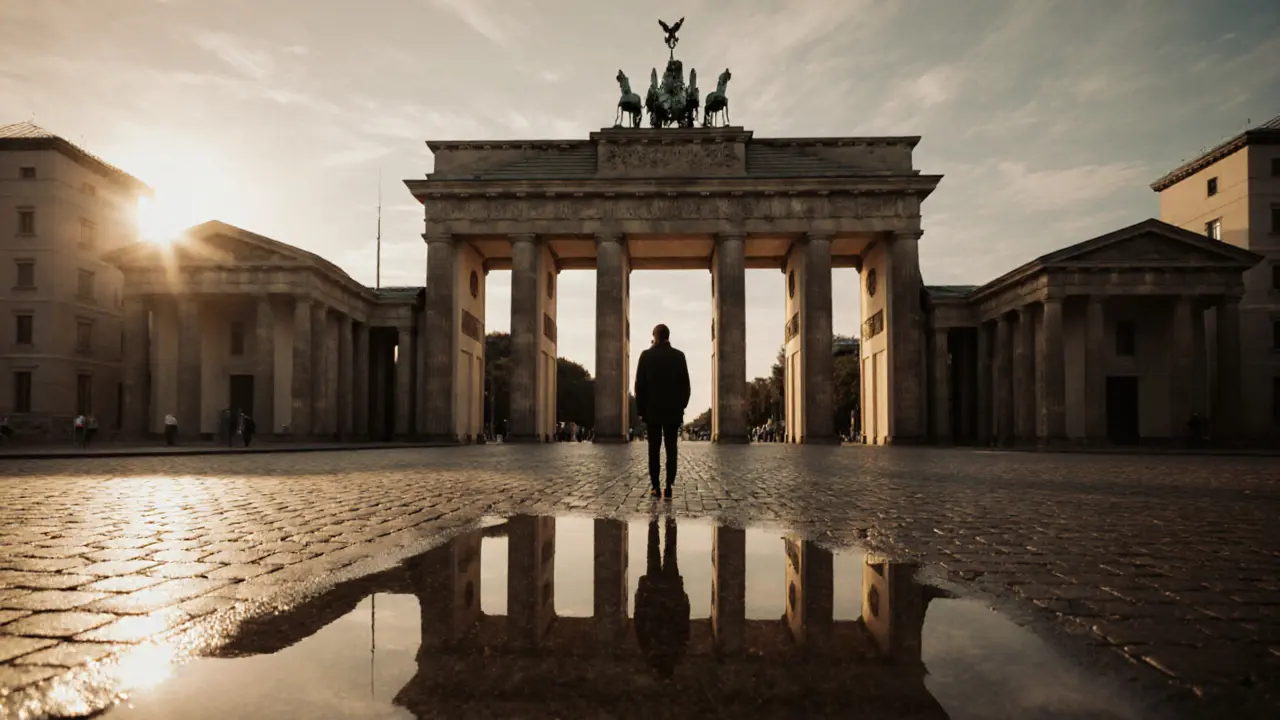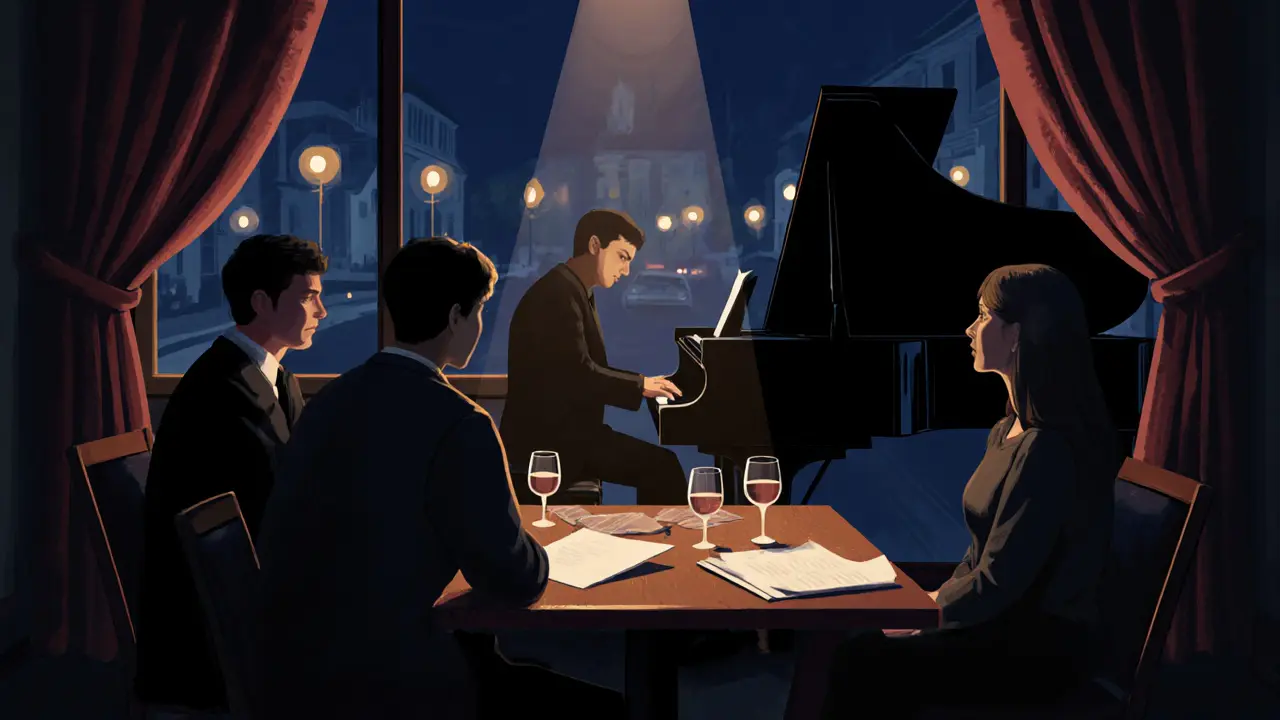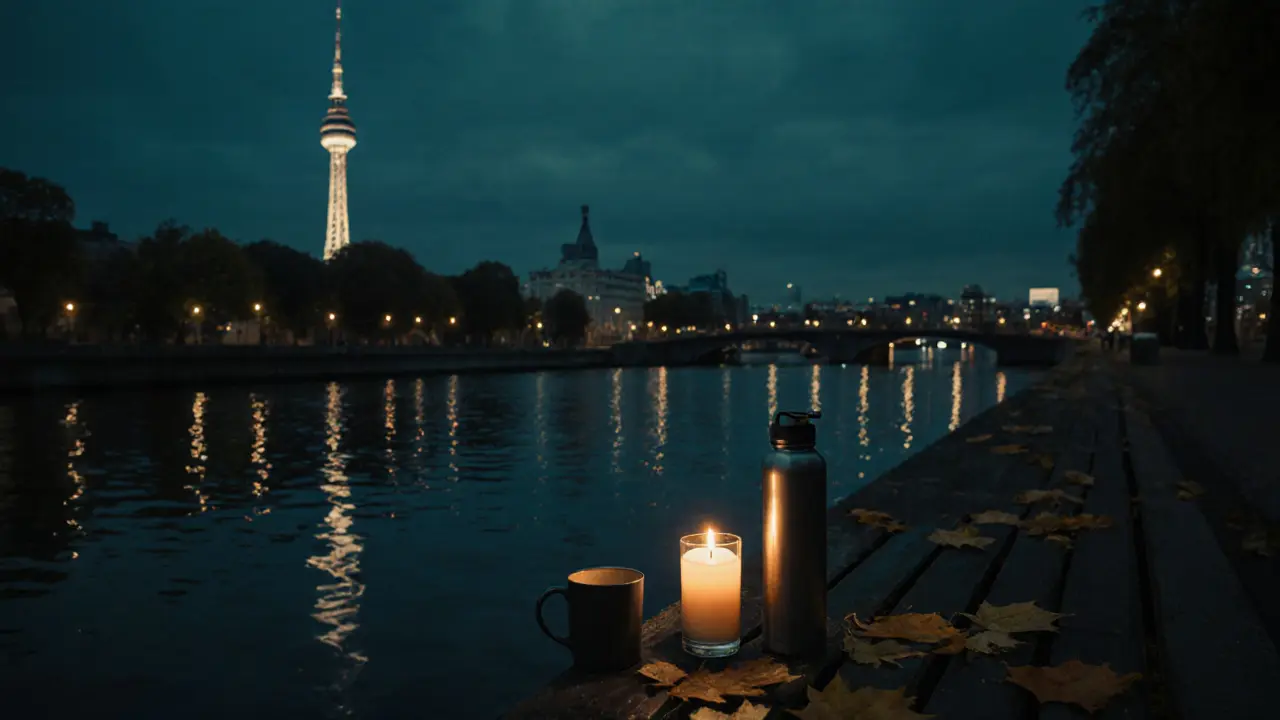Exploring Berlin's Cultural Highlights: A Sophisticated Night Out in the Capital

Berlin doesn’t just have museums and street art-it has rhythm. The city pulses with history in its alleyways, music in its underground clubs, and quiet elegance in its cafés tucked between 1920s buildings. But if you’re looking to experience it all with depth, grace, and a personal touch, the idea of a sophisticated companion isn’t about romance-it’s about access. It’s about someone who knows where the light hits the Brandenburg Gate just right at sunset, who can guide you past the crowds at the Pergamon Museum without missing the hidden details, and who understands that culture isn’t just seen-it’s felt.
Why Culture and Company Go Together in Berlin
Berlin’s cultural scene is vast. There are over 170 museums, 180 theaters, and 1,500 galleries. But trying to navigate it alone-especially if you’re short on time or unfamiliar with the local context-can leave you overwhelmed. You might stand in front of a Kandinsky and wonder why it matters. Or walk through East Side Gallery without knowing the stories behind each mural. A thoughtful companion doesn’t just show you places. They connect you to meaning.
This isn’t about clichés or stereotypes. It’s about curated experiences. Think of it like hiring a private guide who also knows how to make you feel at ease. Someone who can arrange a quiet wine tasting in a hidden cellar near Mitte after a morning at the Jewish Museum. Or who knows the exact time to visit the Berliner Dom so you can photograph the golden dome without tourists in the frame.
The Art Scene: Beyond the Tourist Stops
Most visitors head to the East Side Gallery or the Museum Island. But Berlin’s real art heartbeat lives elsewhere. In Kreuzberg, tucked above a vintage bookstore, you’ll find KW Institute for Contemporary Art, where emerging artists from across Europe debut work that challenges norms. In Neukölln, a converted factory houses Galerie Eigen + Art, where you can meet the painter behind the piece you saw online.
With the right guide, you won’t just walk through these spaces-you’ll talk to the artists, hear why they chose a particular shade of gray, or why they left a canvas unfinished. These aren’t performances for tourists. They’re conversations. And they happen only when you know where to look-and who to ask.
Music, Memory, and Midnight Jazz
Berlin’s music scene is legendary, but not all of it is in Berghain. The real soul of the city’s sound lives in smaller venues. In Charlottenburg, Quasimodo hosts intimate jazz nights where the pianist knows every standard by heart-and plays one just for you if you mention your favorite song. In Prenzlauer Berg, Werkstatt der Kulturen brings together musicians from Syria, Nigeria, and Poland for improvised sets that no playlist could replicate.
These aren’t clubs. They’re living rooms with sound. And the best way to experience them? Arrive early, sit close, and let someone who’s been there before explain why the drummer’s stick taps on the rim matter more than the bassline.

History That Breathes
Walk through the Tiergarten and you’ll pass the Holocaust Memorial. But few notice the small bronze plaques embedded in the ground nearby-Stolpersteine, or “stumbling stones”-each marking where a Jewish family once lived before being deported. There are over 75,000 of them across Germany. A knowledgeable companion can take you to one that bears the name of a woman who taught piano in Schöneberg. You’ll hear her story. You’ll feel the weight of it.
At the Berlin Wall Memorial on Bernauer Straße, you won’t just see a fragment of concrete. You’ll learn how families used clotheslines to pass notes across the divide. How a single brick held a child’s drawing. How the wall didn’t just divide a city-it fractured lives.
Dining with Context
Berlin’s food scene is often reduced to currywurst and kebabs. But the city’s culinary identity runs deeper. In a quiet kitchen in Friedrichshain, a chef who trained in Tokyo and Paris serves a tasting menu built around forgotten Prussian ingredients: smoked eel from the Spree, juniper berries foraged near Potsdam, rye bread baked with sourdough from 1923.
With a companion who understands the history, you’ll taste more than flavor. You’ll taste resilience. You’ll taste how a city rebuilds itself-not just with buildings, but with traditions.

When the Night Turns Quiet
Berlin doesn’t sleep. But it does slow down. After midnight, the city shifts. The lights in the Kulturbrauerei dim. The last train from Alexanderplatz pulls away. And in a quiet corner of the Landwehr Canal, someone might light a candle on a bench where poets once read verses under the stars.
That’s when the real Berlin reveals itself. Not in the neon of Schöneberg, but in the silence between notes. In the way the reflection of the Fernsehturm ripples on the water. In the warmth of a shared thermos of spiced tea after hours of walking.
This isn’t about luxury. It’s about presence. About having someone beside you who sees the city the way you want to see it-curious, thoughtful, awake.
What to Look For
If you’re considering this kind of experience, here’s what matters:
- **Discretion**-The best guides don’t advertise. They’re found through trusted networks, not search engines.
- **Cultural fluency**-They should know Berlin’s history, art, and music well enough to answer unexpected questions.
- **Respect**-This isn’t transactional. It’s about mutual understanding. The right person won’t push boundaries-they’ll honor them.
- **Timing**-Book ahead. The most thoughtful companions are booked weeks in advance, especially during art fairs or the Berlin Film Festival.
Avoid anyone who promises “romance” or “entertainment.” That’s not what Berlin offers. What it offers is connection-quiet, deep, and unforgettable.
Final Thoughts
Berlin doesn’t need to be seen. It needs to be understood. And sometimes, understanding comes not from a guidebook, but from a conversation with someone who’s lived here long enough to know what the city hides-and what it reveals when you’re ready to listen.
Is it legal to hire a companion for cultural tours in Berlin?
Yes, hiring a companion for cultural or social outings is legal in Berlin, as long as it remains consensual, non-exploitative, and doesn’t involve sex work. Berlin has clear legal boundaries between companionship and prostitution. Professional companions who focus on cultural experiences, conversation, and guided tours operate within the law and are often vetted through private networks or curated services.
How much does a cultural companion in Berlin typically cost?
Rates vary based on experience and duration. A four-hour cultural tour with a knowledgeable companion typically ranges from €200 to €400. Longer engagements, such as multi-day itineraries during festivals, may cost €800-€1,500. These prices reflect expertise-not just companionship. Many professionals hold degrees in art history, music, or urban studies, and have years of experience guiding international visitors.
Can I find a companion who speaks my language?
Absolutely. Berlin’s cultural companions often speak at least three languages fluently. English, French, Spanish, and Mandarin are common. Many also speak Russian, Arabic, or Turkish due to the city’s diverse population. When booking, specify your preferred language-most services will match you with someone who meets that requirement.
Do these companions only work at night?
No. Most cultural companions work during daylight hours-museum visits, gallery openings, and historical walks are typically scheduled between 10 a.m. and 6 p.m. Evening engagements, like dinner or jazz concerts, are optional and arranged based on preference. The focus is always on culture, not nightlife.
How do I find a reputable cultural companion in Berlin?
Avoid public ads or dating apps. Reputable companions are referred through trusted networks, luxury concierge services, or cultural institutions like the Goethe-Institut. Some are listed on private platforms that require verification of credentials, references, and background checks. Look for profiles that highlight education, past clients (without names), and specific cultural expertise-not photos or romantic language.